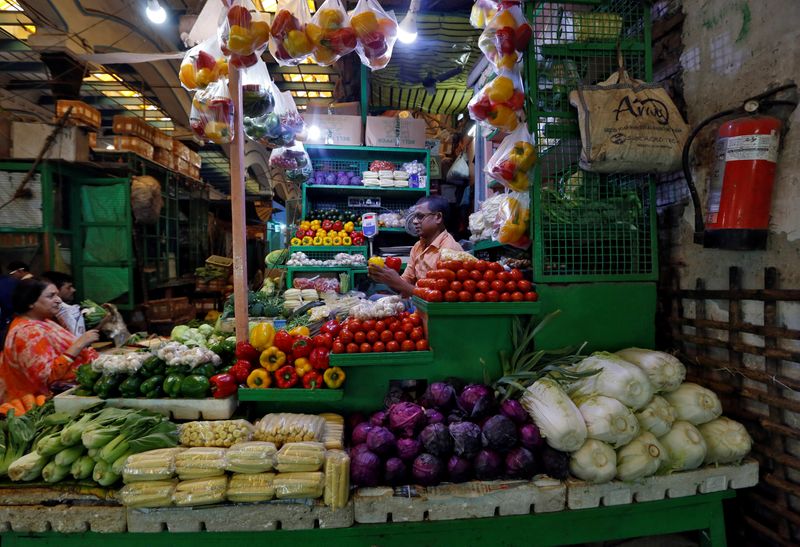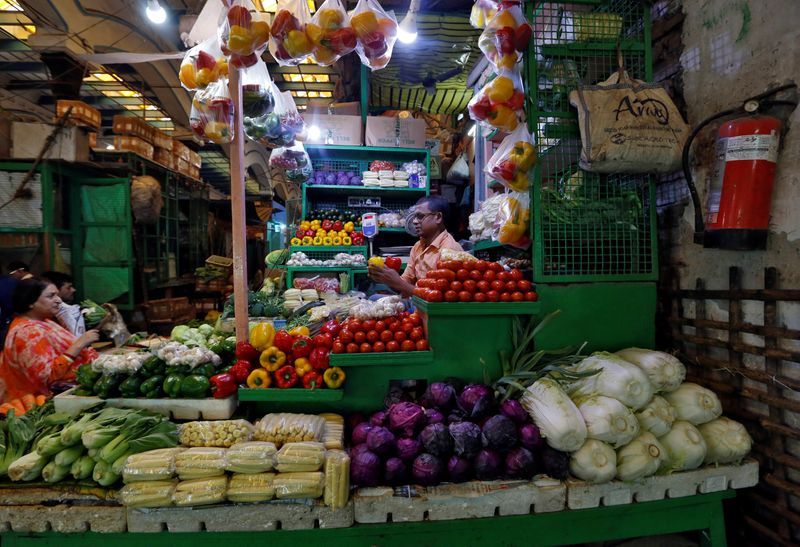By Tushar Goenka
BENGALURU (Reuters) - India's retail inflation likely accelerated to 6.0% in January, the upper limit of the Reserve Bank of India's tolerance band, driven by higher consumer goods and telecom prices along with a comparatively low rate a year ago, a Reuters poll found.
Inflation is climbing across the world and India is no exception but price rises have stayed relatively tame by historical standards, allowing the central bank to leave interest rates unchanged for now.
Still, prices of daily consumables like tea, cooking oil, pulses, among others, have increased by 20%-40% since the beginning of the COVID-19 pandemic.
On a month-on-month basis, prices of food, vegetables, fruits and edible oil showed signs of moderation last month.
The Feb. 7-9 poll of 37 economists predicted inflation as measured by the consumer price index (CPI) rose to 6.00% in January on an annual basis, the highest in seven months, from 5.59% in December.
Over one-third of respondents, 14 of 37, expected inflation to have breached the RBI's 6.00% upper threshold.
"Besides unfavourable base effects, non-food components in the inflation basket are likely to add to the headline's rise," said Radhika Rao, senior economist at DBS Bank, who forecasts inflation at 6%, in line with the Reuters poll median.
"These are likely to offset easing price pressures from a seasonal pullback in food and steady domestic fuel at the start of the year."
Still, the RBI - which said reviving growth was an overarching priority - was expected to hold its benchmark interest rate on Thursday, according to a separate Reuters poll and was a close call for a lift-off even in April.
Indeed, inflation was expected to average 4.8%-5.8% in each quarter through at least end-2023, below the RBI's 2%-6% target range, another Reuters found last month.

"Inflation is not showing signs of being persistent yet and remains within the RBI's target band. It is therefore likely the central bank chooses to look through it for now," Sakshi Gupta, senior economist at HDFC Bank, said.
"We expect the RBI to support growth and raise rates only once there are greater signs of a more even recovery."
